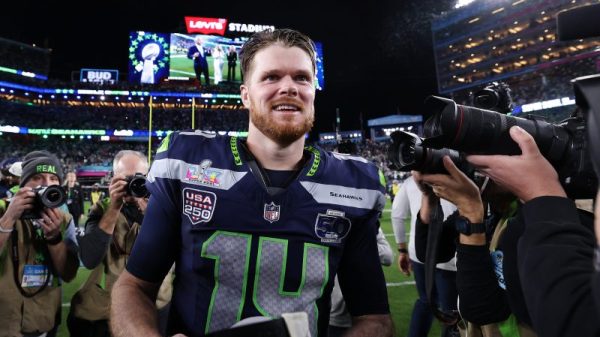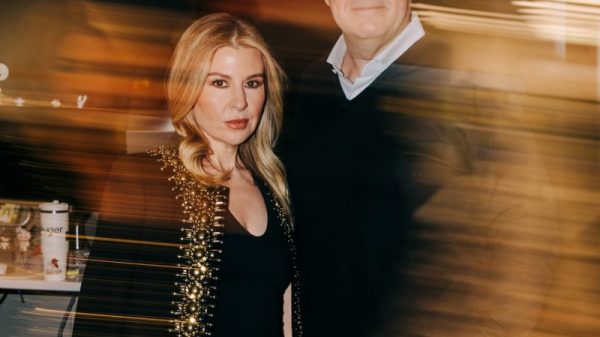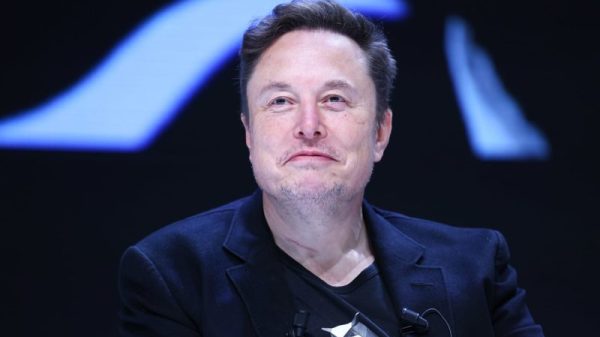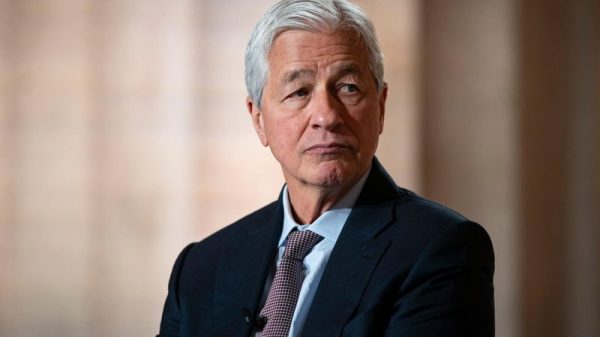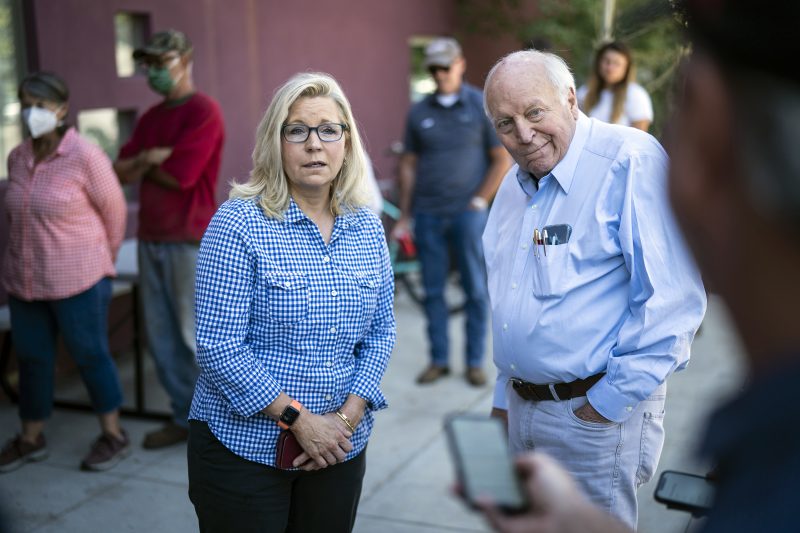Former vice president Dick Cheney, who was George W. Bush’s No. 2 and served in other Republican administrations, will vote for Vice President Kamala Harris in the November election, he said in a statement Friday — marking a remarkable historic moment and one of the most significant defections to the Democratic nominee from the opposing party two months before Election Day.
“In our nation’s 248-year history, there has never been an individual who is a greater threat to our republic than Donald Trump,” Cheney said in his endorsement, which confirmed remarks his daughter had made hours earlier. “He tried to steal the last election using lies and violence to keep himself in power after the voters had rejected him. He can never be trusted with power again.”
Cheney said he was voting for Harris to fulfill his civic duty to “put country above partisanship to defend our Constitution.” The remarks that seemed designed to persuade other conservatives — and, particularly, those who have held positions of influence — to similarly back a Democratic presidential candidate for the first time.
Cheney’s statement makes him the highest-profile Republican to actively support Harris, at a time when many in Trump’s party have expressed private and public reservations about him but have stopped short of using their positions to advocate for his opponent. It also puts the spotlight on other Republicans who have not already endorsed Trump or Harris, including former president George W. Bush, former vice president Mike Pence, former White House chief of staff John Kelly and Utah Sen. Mitt Romney, who was the GOP presidential candidate in 2012.
Each has warned publicly or privately about the threat they believe Trump represents but have not taken the additional step of backing Harris.
Harris’s campaign has been wooing Republican voters in recent weeks, aiming to blunt attacks from Trump assailing her as aggressively liberal and a “communist.” While the strategy is not without risk — as some Democrats continue to maintain a disdain for Cheney dating back to his time as a pugilistic vice president and outspoken advocate for the Iraq War during Bush’s presidency — Harris’s allies sought to cast the former vice president’s endorsement as part of a broader trend of Republicans putting policy differences aside to unite behind defeating Trump.
“The Vice President is proud to have the support of Vice President Cheney, and deeply respects his courage to put country over party,” Harris campaign chair Jen O’Malley Dillon said in a statement Friday. “He joins hundreds of Republicans who are backing the Vice President and her patriotic vision of America over former President Trump, because, as Vice President Cheney said, the very future of our republic is at stake in this election.”
Harris herself did not immediately comment on the Cheney endorsement, which some Democratic strategists saw as part of a delicate balancing act her campaign is carrying out as it courts Republicans while also seeking to keep the Democratic base unified.
Trump responded to the endorsement by attacking Cheney as an “irrelevant RINO,” using an acronym for “Republican in Name Only.” He also called Cheney out over his support for the Iraq War, which in hindsight has become one of the most unpopular initiatives of the Bush-Cheney administration.
“He’s the King of Endless, Nonsensical Wars, wasting Lives and Trillions of Dollars, just like Comrade Kamala Harris,” the former president wrote on his social media platform, Truth Social. “I am the Peace President, and only I will stop World War III!”
Trump went on to attack Cheney’s daughter, former congresswoman Liz Cheney (R-Wyo.), over her role in helping to lead the investigation into the Jan. 6, 2021, attack on the Capitol, which she accused Trump of inciting.
Speaking in Texas on Friday afternoon, Cheney had said her father would join her in supporting Harris in her race against Republican nominee Donald Trump.
“Dick Cheney will be voting for Kamala Harris,” she said at the Texas Tribune Festival in Austin.
Liz Cheney, who lost reelection in 2022 to a Trump-backed primary challenger, announced Wednesday that she will vote for Harris.
Her father, who served as vice president under President George W. Bush from 2001 to 2009, endorsed Trump when he first ran for president in 2016. But he grew critical of Trump, especially after the Jan. 6 attack, and appeared in primary ads for his daughter where he called Trump a “coward” and a “threat to our republic.”
Joel Payne, a Democratic strategist, said Cheney’s endorsement of Harris highlighted how Democrats will probably need to get comfortable with “strange bedfellows” to defeat Trump — something that may require linking arms with people they once despised.
“This is not about Dick and Liz Cheney expressing agreement with Kamala Harris on individual issues and vice versa,” he said. “This is about a statement of no confidence in Donald Trump from the Cheneys and creating a permission structure for those Republicans who have been alienated by Donald Trump and MAGA to feel comfortable casting a vote for Kamala Harris.”
The Cheneys also cast their endorsements as being driven more by their grave concern over the threat posed by a second Trump term than by their support for Harris.
“If you think about the moment that we’re in, and you think about how serious this moment is, my dad believes — and he’s said publicly — there’s never been an individual in our country who is as grave a threat to our democracy as Donald Trump is, and that’s the moment that we’re facing,” Liz Cheney said Friday.
The Cheneys’ dual endorsement comes after the notable absence of past Republican standard-bearers such as Bush, Pence and Romney at this year’s Republican National Convention in Milwaukee. By contrast, the Democratic convention in Chicago included appearances by Barack and Michelle Obama and Bill and Hillary Clinton, as well as several Republicans who previously supported Trump.
Dick Cheney epitomized the Republican Party for decades, serving as a congressman from Wyoming, White House chief of staff for President Gerald Ford and defense secretary for President George H.W. Bush.
Cheney was pivotal in persuading Bush to go to war against Iraq in the aftermath of the Sept. 11, 2001, terrorist attacks. His stance on the “war on terror” helped establish the detention camp at Guantánamo Bay for suspected terrorists, and he defended waterboarding and other controversial intelligence-gathering techniques that critics called torture.
His power was evident in almost every area in politics as second-in-command. He screened potential Supreme Court nominees and led the selection of personnel from Cabinet officers to key lower-level positions.
“I’m not used to agreeing with one Cheney, let alone two, but I continue to respect @Liz_Cheney for putting country over party,” Rep. Seth Moulton (D-Mass.), wrote on X. “Her endorsements speak volumes about the threat posed by Donald Trump at a time when so few Republicans have the courage to speak up and do the same.”
In her remarks, Liz Cheney also pledged her support for Rep. Colin Allred (D-Tex.) in his challenge to Sen. Ted Cruz (R-Tex.). She said Allred, a former House colleague, is a “tremendous, serious candidate” and that she will be “working on his behalf.”
Cheney blasted Cruz for leading the Senate effort to overturn the 2020 presidential election, in which Trump lost to Joe Biden.
“There were no legitimate contested states. He was saying he hoped to be able to overturn the election,” she said. “That is not someone you can put in a position to do that again.”
Harry Dunn, a former Capitol Police officer who was injured in the Jan. 6, 2021, insurrection, congratulated Liz Cheney on Thursday.
“Good on you,” Dunn, who ran unsuccessfully for a House seat in Maryland, wrote on X.






